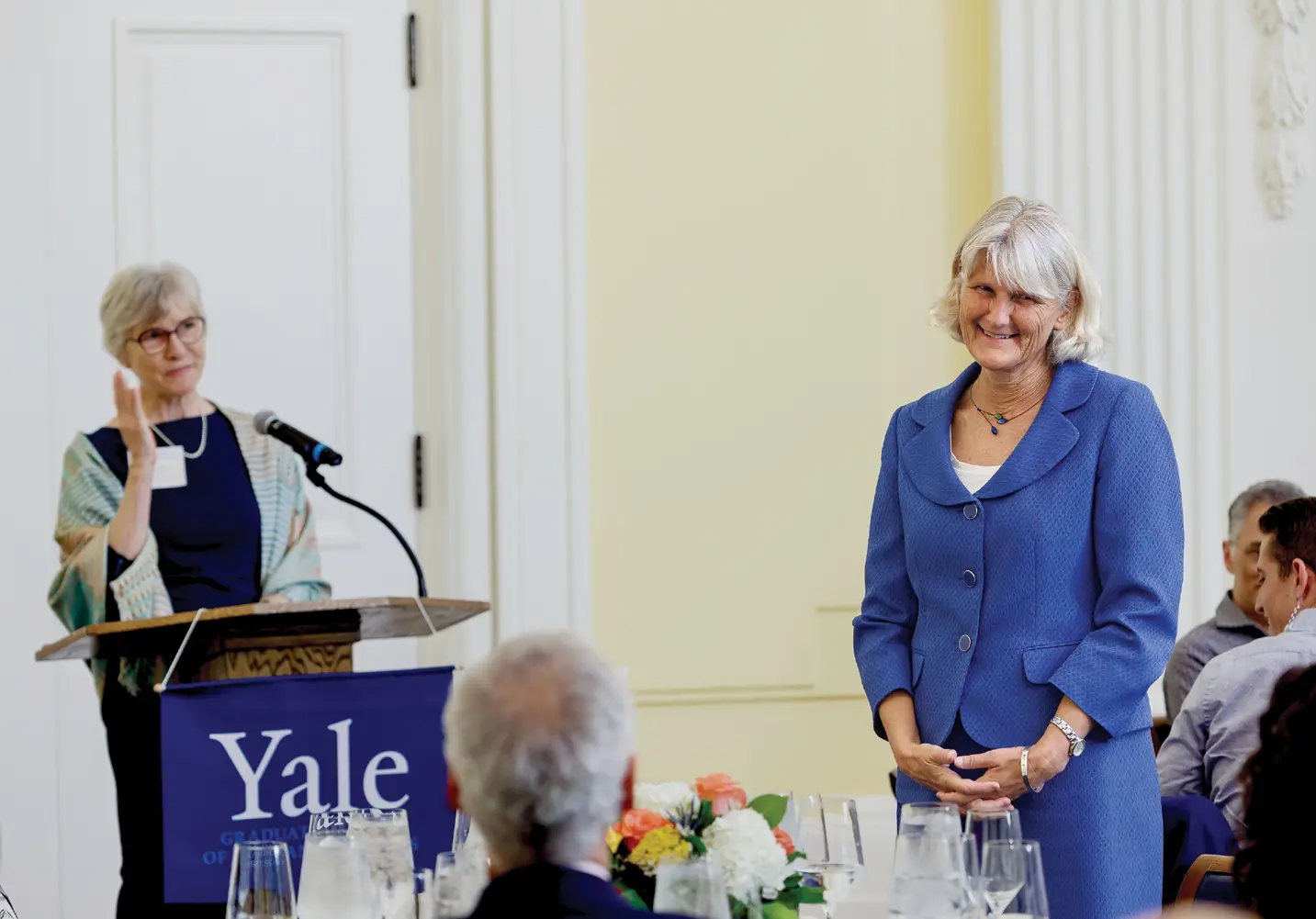President Bradley Awarded
Yale’s Highest Alum Honor

Bradley, who received her PhD from the Yale School of Public Health in 1996, was one of four recipients of Yale’s Wilbur Cross Medal, the highest honor the university bestows on its graduate school alums. Cross Medal recipients are nominated by peers in their field and then evaluated and selected through an internal review process at the Yale Graduate School of Arts and Sciences. Bradley accepted the award and delivered the Dean’s Lecture at the School of Public Health in ceremonies at the university on October 2.
In her talk, “Getting on the Balcony,” Bradley spoke of the many transitions in her career that began as an administrator at Massachusetts General Hospital, shifted to her graduate work, public health research and other leadership positions at Yale, and pivoted again to a series of global health initiatives that she has continued to carry out while serving as Vassar’s President since 2017.
“I love transitions—as much as they are unsettling, too,” Bradley said, “because they allow a time of disengagement and reengagement, and in that moment when one has disengaged from the previous work but not yet reengaged fully in the new work, all things are free, unencumbered, full of potential, open to what may be new. … Transitions, for me, are at the heart of learning.”
Bradley explained how she is currently applying what she learned while taking part in a research project in 2003 with Dr. Harlan Krumholz, a professor at the Yale School of Medicine, to a new project she and others at Vassar are currently undertaking. The original project examined how hospitals responded when heart attack patients were initially admitted.
“In 2003, only about a third of patients with lethal heart attacks received the angioplasty (or similar procedure for opening a blocked coronary artery) within 90 minutes of arriving at the hospital,” she said. “And opening that artery saves lives. We noted, however, that a set of hospitals were consistently getting it right—they were faster and more successful. And amazingly to us from our privileged perch, these were ‘no name’ hospitals.” The study led to changes in heart-attack protocols at hospitals across the country that have resulted in the saving of countless lives since then, Bradley noted.
Applying this methodology to a completely different subject, Bradley and a team of researchers at Vassar are currently analyzing policies and procedures at colleges that maintain much higher than expected graduation rates. “What are they doing differently? That’s our research question, and of course we want to learn and ideally spread whatever evidence emerges,” she said.
Bradley concluded her talk by reflecting on the patterns that have emerged in her life and career. “First, students have often been at the center of change for me. They often do not know it, but they have opened many doors in unexpected ways,” she said.
“Second, the pursuit, rather than the attainment, of truth seems crucial. At the height of accomplishment, I have moved to open a new area of inquiry. It is not for everyone, but it has made for a meaningful journey for me.
“And last, if change is the throughline of this talk and my career, I must end in paradox—as all this change has been possible due to the tremendous stability that has come from my love-filled marriage to John, the stability of our health—which we all know is so important—and the many institutional and personal supports that Yale and the academy at large have provided me.”